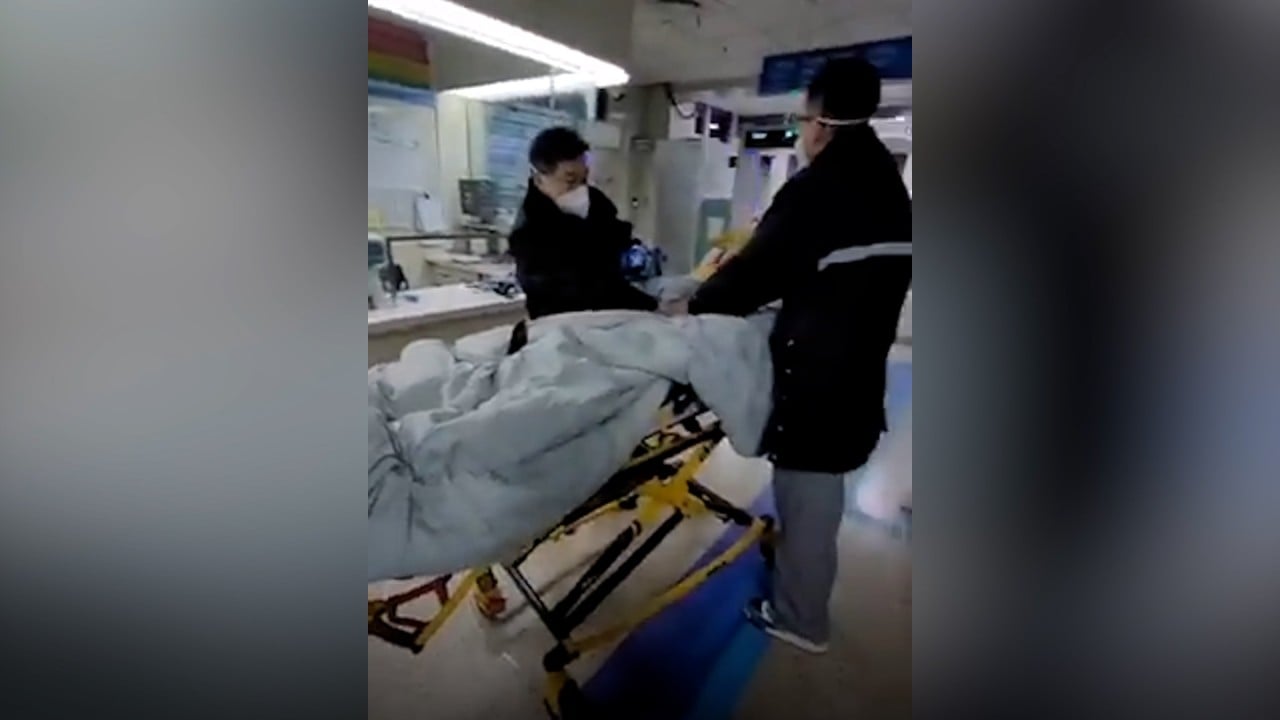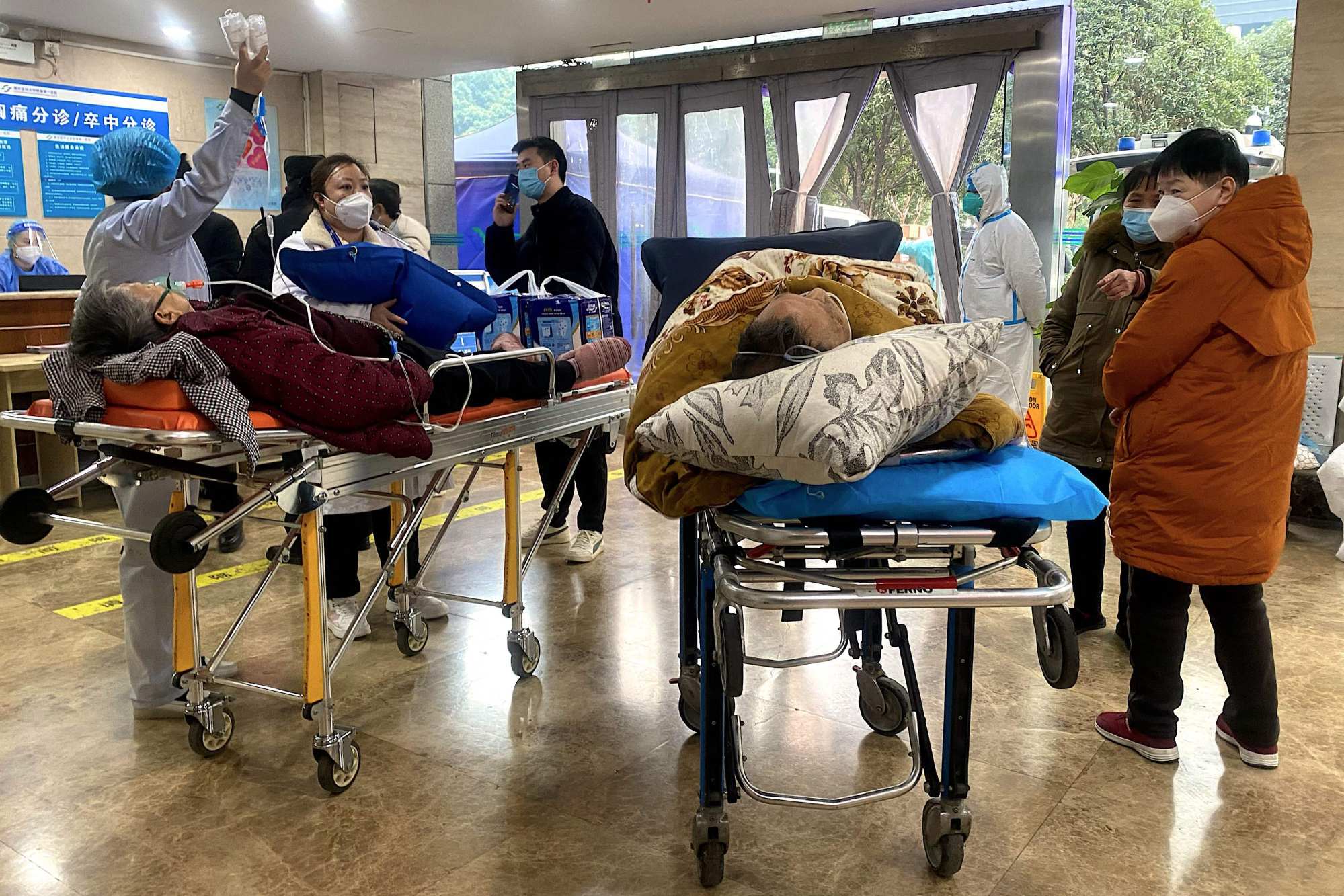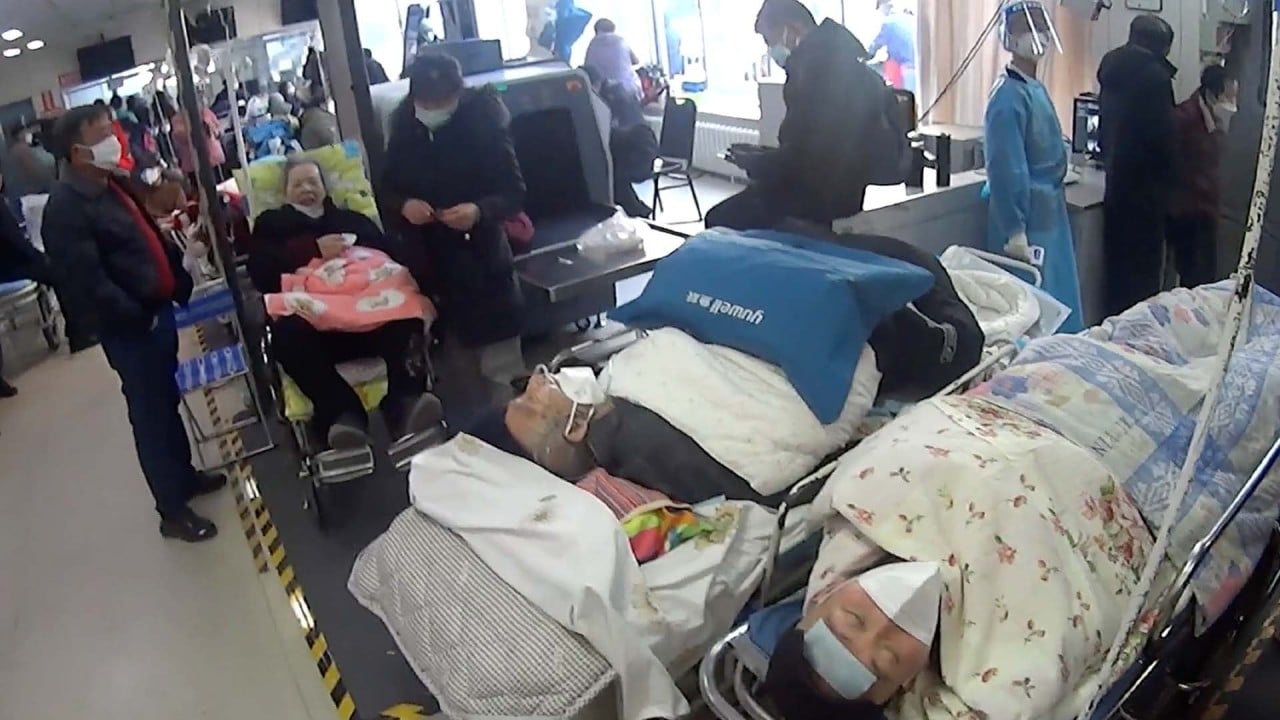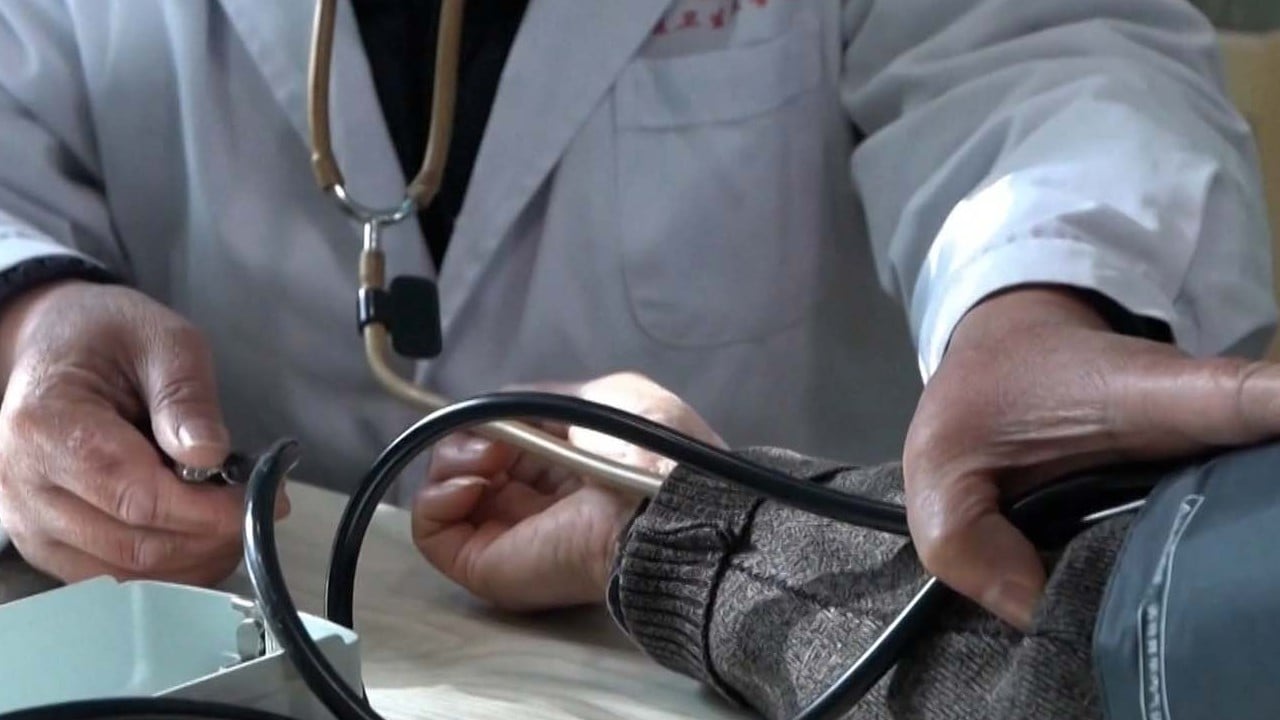
02:27
Inside an overcrowded Beijing hospital struggling with Covid surge in China
Morgues overwhelmed: why China’s new Covid crisis is all of its own making
- Fever medicine is in short supply, hospitals are swamped, the death toll is soaring among the elderly, and morgues are overwhelmed with bodies
- Beijing has had nearly three years to prepare for pandemic controls to be lifted and learn from other countries – so how has it messed this up?
They have also tried to reshape public perception of the virus – until last month labelled serious and deadly in the official narrative to justify zero-Covid – by stressing that the latest Omicron variants may be highly contagious but the symptoms they cause are mild.
Beijing draws medical staff from provinces to ease overwhelmed hospitals
Moreover, they have tried to give the impression that the abrupt reopening in the middle of winter, when respiratory viral infections usually peak, was planned and thought out.
Alas, the reality could not be more starkly different – fever medicine in short supply, hospitals and emergency services swamped, an acute blood shortage in many cities, the death toll soaring among the elderly, and morgues and funeral parlours overwhelmed with bodies.
In a word, China is woefully underprepared for the chaos that is inevitably unfolding since the controls were lifted, as seen in other countries.
So here’s the question: since China has had nearly three years to learn from other countries and prepare for reopening, how has it messed this up?
‘Too anxious to sleep’: China’s zero-Covid cadres in ‘impossible’ balancing act
Before trying to answer that, I would like to share the sad and harrowing experience of a dear friend in Beijing this week, whose father died after he was unable to get the medical care he needed.
My friend’s 84-year-old father, who had previously had a stroke, became unwell on Monday afternoon. My friend was on a business trip in Hainan and scrambling to get on a flight back to Beijing, while making calls to the 120 emergency hotline which was permanently jammed – presumably because of high demand.
At 10pm, his mother finally managed to get through and an ambulance arrived within 10 minutes. After another 10 minutes, my friend’s father had been transferred to the ambulance and was heading to Dongfang Hospital, a top-tier facility affiliated with the Beijing University of Chinese Medicine. It is located in the middle-class neighbourhood of Fangzhuang, in the city’s southern district of Fengtai. It is 600 metres from the compound where the family lives.
When my friend landed in Beijing around midnight and rushed to the hospital he was shocked to find that his father was still in the ambulance. It had been parked in front of the hospital entrance for nearly two hours.
He was told the hospital had run out of ICU beds and oxygen tanks and his father was being kept alive on oxygen in the ambulance.
After waiting for another agonising hour or so, an emergency worker told my friend that they could not wait any longer as his father’s condition was worsening.

They decided to wheel his father into the ICU and try their luck. In a video taken by my friend, an emergency worker is heard telling an ICU doctor that the patient was dying and could not wait any longer.
Eventually they managed to get an ICU bed, but his father died about 15 minutes later. His death certificate states that he died at 1.59am on December 20, from sudden cardiac death.
You might wonder why my friend did not ask his friends or neighbourhood officials for help when he could not get through to emergency services earlier in the day. But help was difficult to find as most of his friends and neighbourhood officials were infected and self-isolating at home. Moving a seriously ill person requires professional expertise. Sending his father to another hospital was also out of the question. Every hospital in Beijing was experiencing more or less the same situation.
Later on, my friend found out that families of the seriously ill had been forced to bring their own beds into the hospital. One nurse told him that her workload was two to three times the normal and she was simply too weak to move an oxygen tank. She had been told that no help was forthcoming that night as many of her colleagues were infected and staying home.
When my friend wheeled his father’s body into the hospital mortuary, he saw body bags lined up against walls and inside a warehouse as the freezers had run out of space. He was told it would take at least seven days for his father’s body to be cremated because all crematoriums have been overwhelmed by demand.
My friend’s experience is not unique. There are similar horror stories all over Chinese social media. One influencer has started a daily death count, highlighting that prominent Peking University professors in their late 70s and early 80s have been dying at an abnormal rate.
As has been widely reported, China did an about-face on its zero-Covid policy, lifting almost all controls because of mass protests in late November. But the protests were just the trigger. The underlying issue is that China’s leaders have finally comprehended the magnitude of the devastating impact of the policy on the economy.
The lack of preparation for this has been made worse by the fact that the government got its priorities wrong from the start. Beijing has spent billions of yuan on prevention instead of treatment, on mass testing and building huge quarantine facilities and makeshift hospitals. Imagine how different it could have been if Beijing had poured all that money and resources into public health infrastructure – including grass-roots clinics across the country so that they could better cope with the surging cases.
China must import mRNA vaccines to stop Covid-19 ‘disaster’: US health experts
The government also messed up its vaccination strategy from the outset. When China first started to roll out vaccines, the National Health Commission strongly recommended that only those people aged between 18 and 59 should get jabbed. That gave the impression that the vaccines were not suitable for people over 60, particularly those with underlying medical conditions. Its main rationale appeared to be that those aged 18 to 59 would have to work and needed protection against the virus while the elderly mostly stayed home.
The NHC’s advice ran counter to the prevailing practice in most countries, where priority was given to the elderly and other vulnerable groups. This has subsequently made it very difficult for the authorities to encourage older people to get vaccinated.
The acute shortage of fever medicine is also a situation of Beijing’s own making. Strict rules have for the past three years discouraged people from buying such medicine over the counter, with the aim of sending anyone infected with the virus to quarantine facilities and makeshift hospitals. That has meant all pharmacies across the country have limited stocks of fever medicine and pharmaceutical firms had significantly curtailed their production of it. Now the authorities have asked them to ramp up production around the clock.
In addition, since medical resources were directed into mass testing and quarantine three years ago, hospitals around the country simply don’t have enough ICU beds and equipment to cope with the surging coronavirus cases. Moreover, hospitals are in dire need of qualified and trained doctors and nurses to work in those ICUs. The authorities are now stepping up training and recruiting ICU doctors and nurses – but this takes time, which they don’t have at this critical moment.



